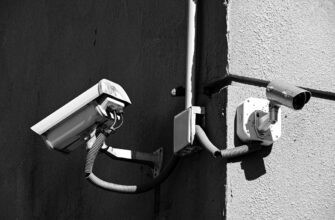- Understanding Halal and Haram in Islamic Finance
- Key Factors Determining Crypto’s Halal Status
- 1. Riba (Interest)
- 2. Gharar (Uncertainty)
- 3. Maysir (Gambling)
- 4. Utility and Ethical Use
- Arguments for Crypto Being Halal
- Arguments Against Crypto Being Halal
- Scholarly Opinions on Cryptocurrency
- Frequently Asked Questions (FAQ)
- Is Bitcoin Halal?
- Can Muslims Mine Cryptocurrency?
- Is Staking Crypto Halal?
- Are NFTs Halal?
- Does Crypto Pay Zakat?
- Conclusion
Understanding Halal and Haram in Islamic Finance
Islamic finance operates under Sharia principles, which prohibit activities involving riba (interest), gharar (excessive uncertainty), and maysir (gambling). For an asset or transaction to be halal, it must align with ethical guidelines, promote societal welfare, and avoid exploitation.
Key Factors Determining Crypto’s Halal Status
1. Riba (Interest)
Most cryptocurrencies don’t inherently involve interest, but earning through staking or lending platforms may raise concerns if structured like conventional interest-based systems.
2. Gharar (Uncertainty)
Crypto’s extreme volatility and lack of intrinsic value could qualify as gharar, though some argue transparency in blockchain reduces uncertainty.
3. Maysir (Gambling)
Speculative trading (e.g., day trading) resembles gambling, while long-term investing may be permissible if based on research.
4. Utility and Ethical Use
Cryptocurrencies used for lawful transactions (e.g., remittances, charity) are more likely halal than those facilitating illegal activities.
Arguments for Crypto Being Halal
- No Interest: Decentralized coins like Bitcoin avoid riba by design.
- Transparency: Public ledgers reduce fraud risks.
- Financial Inclusion: Provides access to unbanked Muslims.
- Zakat Compliance: Easy tracking of holdings for charitable giving.
Arguments Against Crypto Being Halal
- Speculative Trading: Short-term volatility mirrors gambling.
- Environmental Impact: Proof-of-work mining contradicts Islamic environmental stewardship.
- Illegal Activities: Association with dark web transactions.
- Lack of Regulation: Risks of scams and market manipulation.
Scholarly Opinions on Cryptocurrency
- Indonesia’s MUI: Declared crypto haram for trading but permissible as a commodity (2021).
- Turkey’s Diyanet: Banned crypto purchases due to volatility (2021).
- Mufti Taqi Usmani: Opposed crypto as gambling-like speculation.
- Dubai Islamic Bank: Launched Sharia-compliant crypto trading (2023).
Frequently Asked Questions (FAQ)
Is Bitcoin Halal?
Scholars are divided. Some permit it as a digital asset, while others forbid it due to volatility.
Can Muslims Mine Cryptocurrency?
Permissible if energy sources are sustainable and profits avoid haram activities.
Is Staking Crypto Halal?
Controversial. If rewards resemble interest, it’s haram; if tied to network participation, some scholars allow it.
Are NFTs Halal?
Depends on the underlying asset. Art NFTs may be halal; gambling-linked NFTs are haram.
Does Crypto Pay Zakat?
Yes, if held as an investment. Calculate 2.5% of its value annually after exceeding the nisab threshold.
Conclusion
Crypto’s permissibility depends on usage, intent, and adherence to Sharia principles. Consult qualified Islamic scholars before investing.








